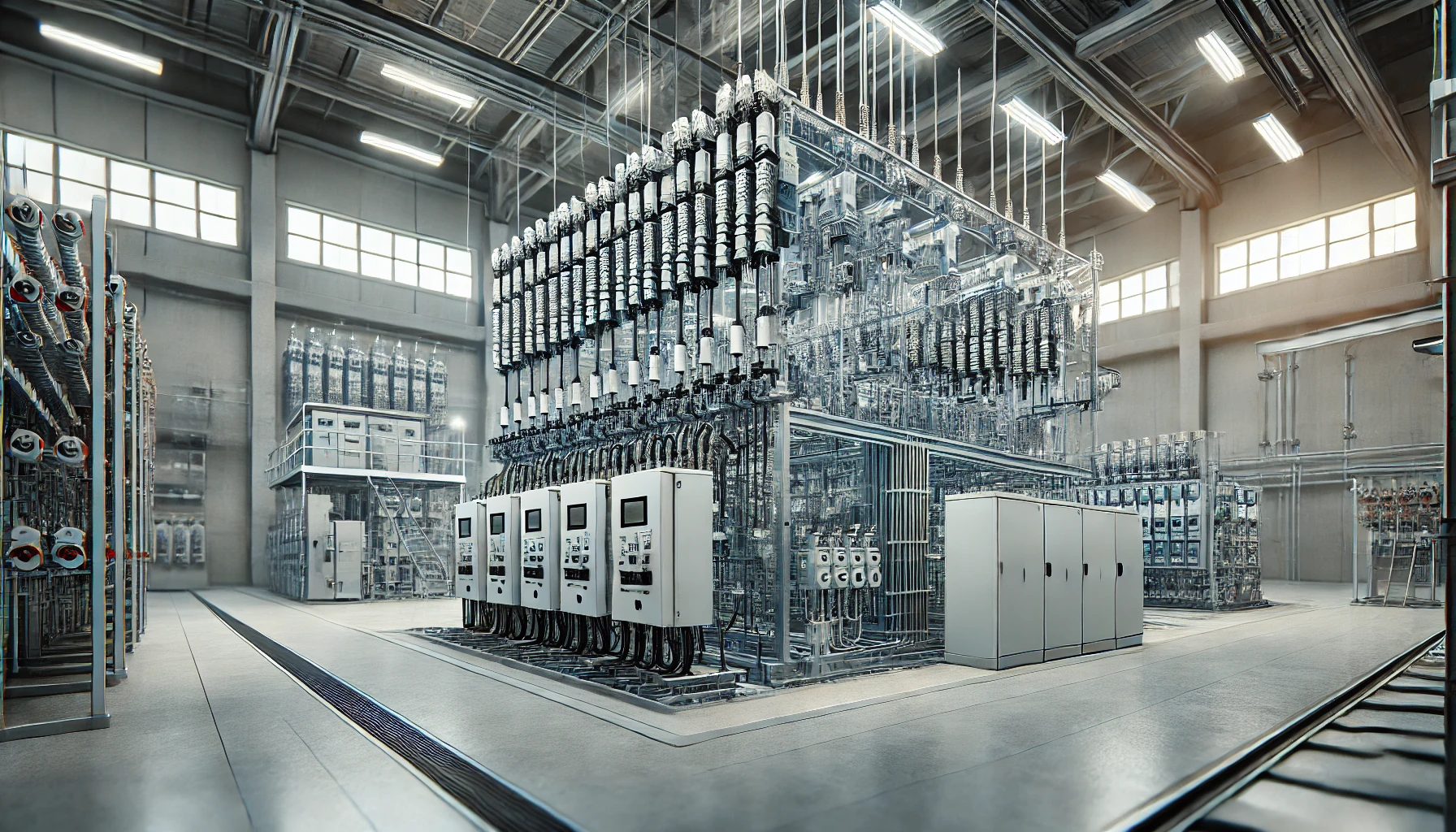Aluminum Busbar Applications | Key Uses & Benefits
When it comes to electrical distribution and power transmission, aluminum busbars have gained a significant foothold in the industry due to their unique properties and advantages. If you’re involved in electrical engineering, power distribution, or any related field, understanding the applications of aluminum busbars can offer insights into optimizing your projects. This article dives deep into the critical uses and benefits of aluminum busbar applications, providing you with a comprehensive overview.
What Are Aluminum Busbars?
Aluminum busbars are critical components used in electrical power distribution systems. They serve as conductive pathways that efficiently distribute electricity from one point to another. Made from high-purity aluminum, these busbars are designed to handle high current loads, making them essential in various industrial, commercial, and residential applications.
Critical Properties of Aluminum Busbars
To appreciate the applications of aluminum busbars, it’s important first to understand their fundamental properties:
- Conductivity: Aluminum busbars offer excellent electrical conductivity, ensuring minimal energy loss during transmission.
- Weight: Aluminum is significantly lighter than copper, making aluminum busbars easier to handle and install.
- Cost: Aluminum is more affordable than copper, offering cost savings in large-scale electrical projects.
- Corrosion Resistance: Aluminum busbars are naturally resistant to corrosion, enhancing their longevity and reliability in harsh environments.
Applications of Aluminum Busbars
Aluminum busbars are versatile and used across various industries due to their favorable properties. Here are some of the most common applications:
1. Power Distribution Systems
One of the primary applications of aluminum busbars is in power distribution systems. These systems require components that can handle high currents with minimal energy loss. Aluminum busbars excel in this role, ensuring efficient power distribution in both commercial and residential settings.
2. Industrial Plants
In industrial environments, where machinery and equipment demand high power loads, aluminum busbars are indispensable. Their high conductivity and ability to handle substantial currents make them ideal for heavy machinery, manufacturing processes, and large-scale industrial applications.
3. Renewable Energy Systems
With the growing emphasis on sustainable energy, aluminum busbars are increasingly used in renewable energy systems such as solar and wind power installations. These systems benefit from aluminum busbars’ lightweight nature and corrosion resistance, ensuring efficient and long-lasting power transmission.
4. Electrical Panels and Switchboards
In electrical panels and switchboards, aluminum busbars serve as the backbone for electrical connections. They provide a reliable and efficient way to manage and distribute power within the system, ensuring optimal performance and safety.
5. Transportation Sector
The transportation industry, including automotive and rail, utilizes aluminum busbars in various applications. For instance, electric vehicles (EVs) rely on aluminum busbars for their electrical systems, benefiting from the material’s lightweight and cost-effective properties.
Benefits of Aluminum Busbars
Understanding the benefits of aluminum busbars can help you make informed decisions when selecting components for your electrical projects. Here are some of the key advantages:
1. High Electrical Conductivity
Aluminum busbars offer excellent electrical conductivity, ensuring efficient power transmission and minimal energy loss. This property is crucial in applications where high current loads are involved.
2. Lightweight and Easy to Handle
Compared to copper, aluminum is significantly lighter, making aluminum busbars easier to transport, handle, and install. This lightweight nature also reduces the overall structural load in installations, offering additional design flexibility.
3. Cost-Effective
Aluminum is more affordable than copper, providing cost savings in both material costs and installation. For large-scale projects, this cost-effectiveness can result in substantial budgetary advantages.
4. Corrosion Resistance
Aluminum naturally forms a protective oxide layer that resists corrosion, ensuring long-lasting performance even in harsh environmental conditions. This corrosion resistance enhances the reliability and longevity of aluminum busbars.
5. Thermal Performance
Aluminum busbars have excellent thermal conductivity, allowing them to dissipate heat efficiently. This property is essential in applications where heat management is critical to maintaining system performance and safety.
Aluminum Busbar Applications: A Closer Look
To further illustrate the versatility of aluminum busbars, let’s take a closer look at some specific applications and their benefits.
Data Centers
In data centers, where uptime and reliability are paramount, aluminum busbars provide efficient power distribution to critical IT infrastructure. Their lightweight nature simplifies installation in raised floors and overhead power systems, while their thermal performance helps manage heat generated by high-density servers.
Electrical Substations
Electrical substations, which play a crucial role in the power grid, rely on aluminum busbars for efficient power transmission and distribution. The high conductivity and corrosion resistance of aluminum busbars ensure reliable performance, even in outdoor and exposed environments.
Commercial Buildings
In commercial buildings, aluminum busbars are used in electrical panels, switchboards, and distribution boards to manage and distribute power effectively. Their lightweight and cost-effective nature make them an ideal choice for large-scale commercial installations.
Renewable Energy Farms
Solar and wind farms benefit from the use of aluminum busbars in their power distribution networks. The material’s lightweight and corrosion-resistant properties make it suitable for outdoor installations, where exposure to the elements is a concern.
Enhancing Power Distribution with Aluminum Busbars
When considering the best solutions for power distribution, aluminum busbars stand out due to their unique combination of properties. Their high electrical conductivity ensures efficient energy transfer, while their lightweight and cost-effective nature provide practical advantages in installation and maintenance. Whether used in industrial plants, renewable energy systems, or commercial buildings, aluminum busbars offer reliable performance and durability. Incorporating aluminum busbars into your electrical systems can lead to significant improvements in efficiency and cost savings, making them a smart choice for a wide range of applications.
Conclusion
Aluminum busbars are a vital component in modern electrical systems, offering a blend of high conductivity, lightweight, cost-effectiveness, and corrosion resistance. Their versatility makes them suitable for a wide array of applications, from power distribution systems and industrial plants to renewable energy installations and commercial buildings. By understanding the key uses and benefits of aluminum busbars, you can make informed decisions that enhance the performance and reliability of your electrical projects.
As a leader in the metal industry, AP Precision Metals is committed to providing high-quality aluminum busbars tailored to meet your specific needs. Our expertise and dedication to excellence ensure that you receive the best solutions for your power distribution requirements. Contact us today to learn more about our aluminum busbar offerings and how they can benefit your next project.







